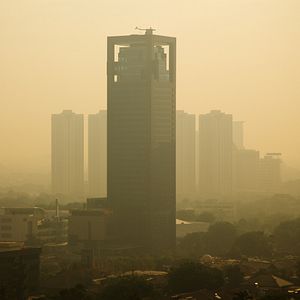Each year, about 200 million people across large swathes of Southeast Asia are forced to choke on dreaded smog caused by massive burning off in Indonesia, where the culprits have enjoyed a long-standing impunity. Each year there are promises by politicians that the issue will be dealt with, yet each year the haze returns.
Landing in Kuala Lumpur recently, where the standing of ruling politicians has plummeted to unprecedented depths, one could be forgiven for feeling trapped in some kind of time warp.
Last year PT Adei Plantations, a unit of Kuala Lumpur Kepong Bhd, was charged in regards to the illegal fires that blanketed Singapore and much of Malaysia. It denied any wrongdoing and is currently being tried in the Pelalawan District Court. A further eight companies and 41 individuals were suspected of lighting fires in Sumatra last year.
That should have been the end of the matter but the acrid smoke awaiting the traveller at the end of each dry season is relentless and has been documented alongside the political platitudes for about two decades.
Igniting a forest fire carries stiff penalties in Indonesia. An individual faces jail terms of up to 10 years and fines of up to $10 million. Companies can be sued for damages and their operations closed. But this rarely happens.
In Riau, Sumatra, flights have again been cancelled and schools closed while more than 22,000 people have been treated for respiratory problems.
According to the World Resources Institute (WRI), about half the fires burning were on land managed by palm oil concessions and logging companies.
The loss of wildlife habitat has already caused a great deal of consternation in Europe, the United States and beyond. Through labeling, consumers are being warned of the dangers associated with purchasing palm oil products on their supermarket shelves.
That has irritated palm oil companies no end but other industries are also serving up precedent, particularly sugar, with allegations of land grabbing and the illegal destruction of forests in Cambodia heading before the international courts amid threats that lucrative contracts will be cancelled as a result.
Companies like Asia Pacific Resources International Ltd., Golden Agri Resources and Wilmar International have also been linked to the annual burning off, which is also destroying peat reserves, a foundation of rainforest ecosystems.
Regional governments are again making all the right noises. The Indonesian parliament has agreed to finally ratify the ASEAN Agreement on Trans-boundary Haze Pollution, 12 years after the treaty was first adopted by the bloc’s 10 member states.
Singapore is proposing its own bill which would result in fines for companies causing smog that afflicts the island state of up to $360,000. This, however, has been criticized by environmental groups as paltry. Still, the bill would also allow for civil suits, paving the way for ordinary citizens to launch legal action against companies that violate the laws.
Over previous years the haze has stood as a testament to the embarrassing inability of ASEAN countries to tackle crucial issues together. Whether the latest promises are enough to stem public outrage is doubtful but by increasing the penalties and ratifying treaties the companies involved have at least been told they are increasingly loathed and perhaps one day more of their executives will be forced to front the courts.
Luke Hunt can be followed on Twitter @lukeanthonyhunt

































